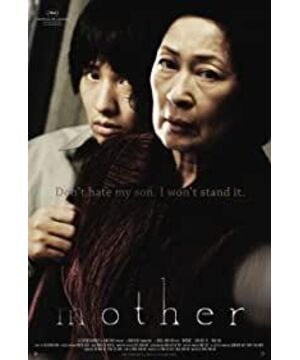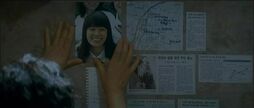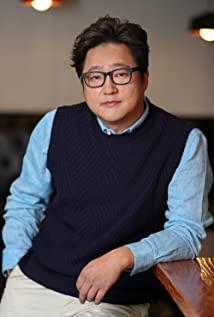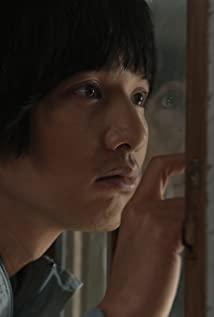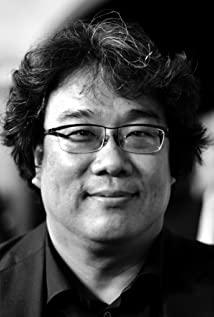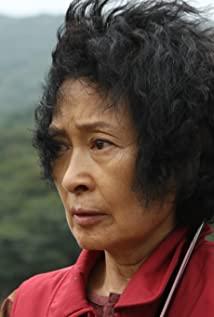Gradually, I will feel that reading and watching movies are also age-specific, and I like it when I was young. When I look back today, I sometimes scare myself. If I could go back in time, what I thought and thought today might also make my younger self ashamed. Recently I often have this feeling, today's me, yesterday's me, are inseparable, but they are indeed two people.
When I read it, I kept holding my heart, and after reading it, my heart seemed to be unable to let go, and it was aching faintly. Maybe watching movies and using emotions also require physical strength. When I was young, I found it enjoyable, but now I may not be able to bear it. Or, it is still because you are young and ignorant, you don't know anything, you don't understand anything, so pain and pain are often words, emotions, and a cool style that you prefer to find temporary pleasure. Do it for yourself or the most. People who care about watch, appreciate and enjoy more ingredients. In fact, the real pain is endless, it may come quickly, but it must not be easy to leave or end.
Compared with "Mother" and "Memories of Murder", I still prefer his earlier "Memories of Murder". "Memories of Murder" is more rigorous and neat in terms of characters and stories, perhaps because the characters and their associated relationships are more complicated, and Feng Junhao's ability as a director is more exposed.
The so-called skills and shots, I think his team has reached a certain level of freedom technically - as long as there are ideas that need to be expressed, they can be presented technically in a relatively complete manner. At the same time, more importantly, Has his own style.
At this level, filmmaking is the same as writing. It is not difficult to achieve a certain level of writing or film technology, pass or higher. What is difficult is that when human civilization and culture have accumulated to such a level, who, who has been replayed repeatedly in various superb forms and exquisite works, is a little bit of a mess of human beings? Can you continue to express new ideas, and at the same time, open your mouth to let people know that this is what he is talking about? This is so difficult. Many people have pursued it for a lifetime, but they can't do it. There are still many people who think they have done it and are complacent, but in fact, it is still far from it.
At the beginning of the film, the mother is cutting herbs with a sharp guillotine. Through the dark corridors in the house full of debris, she is busy with her work while habitually looking at the street outside the house with worried eyes. his retarded son. The monotonous and frightening cutting sound of the sharp guillotine, the absent-mindedness of the mother, the audience can feel the suffocation-like feeling of the heart rising to the throat. . . There was a harsh brake sound, the mother's scream, and the mother who ran out the door was entangled with her son, and the mother screamed in panic: "You are bleeding." . . The ignorant son went with the neighbors to chase the car that caused the accident. The son was fine, but the mother was cut by a guillotine, and the blood on the son's body belonged to the mother.
Opposite to the momentary clamor in the street, there was the guillotine in the room that was shining with cold light, and a drop of blood was slowly dripping from the blade.
From "Memories of Murder" to "Mother", I personally feel that the director pursues this kind of pleasure on the edge very much, and uses multiple means of video to control the audience's heart. This is definitely what he wants, and I have no doubts at all.
When I used to write film reviews in film magazines, the worst thing I was at or avoided was the kind of reviews that tried to reveal political metaphors that might have something to do with my personal way of doing things. It's like trying to figure out a person's heart. If I haven't gotten along with this person, or I've just watched it for a long time, I can't figure out the deep meaning he wants to express from his few words.
If you watch a lot of movies, you will feel that movies are the language of different countries trying to express their own values. Although these movies may not necessarily tell the stories that happened in that country, the way they tell it, the feelings and emotions they inadvertently penetrate, Temperament, there must be differences between individual directors in each country, but there must be some commonalities.
A few years ago, when Korean films were particularly prosperous, the magazine I was in introduced Korean films in series for many times. I always remember Sairen telling me, did you notice that there are many mentally handicapped and disabled people in Korean films. . I also remember that the comments on many Korean films at that time, such as "Unknown Recipient", "Mints", and of course "Memories of Murder", the most frequently mentioned "memory scars" common to Koreans, then A torn pain. So, naturally, people who are often disabled or mentally handicapped seem to be a common expression of Korean filmmakers who are unspeakable but understand each other.
If "Mother" is only regarded as a thriller movie, because of the relative simplicity of the case and the characters involved, the director exerts too much force in some paragraphs, and some seemingly dispensable cutscenes will be highlighted, making people feel not satisfied. But if, really, try to use that, which I don't really like and I'm not very good at, about certain metaphorical "seats to the right", everything behind the film is especially clear. Although it may be boring to sum up a movie with such a metaphor.
If the mentally handicapped son is the self-condition of the Korean directors about their own situation, what he conveys is a person's ignorance of his own destiny. He is constantly framed by others without knowing it. He knows what his mother said, who bullies him It is necessary to double the repayment, but it is always impossible to control the proportions; at the same time, because of the inability to communicate with people normally, it will often hurt innocent people.
If the son is the Korean self that the directors want to express, then who is the mother? Maybe "mother" is what makes Koreans what Koreans are all about, living wisdom, conscience, morality, and emotion. . . Mother is more like a big pocket, all the things that Koreans can't live without can be put in it. Perhaps, the mother can be called very thematically: "Motherland".
The mother gave life to her son, but at the most desperate and difficult time she wanted to end his life. (The words in the film are unclear. It seems that the son used to be a very healthy and normal child, but in that "suicide attempt" incident, because of the mother's poison, it became the later appearance.) The mother's "crime" against her son was also the mother. She has been trying to forget the untouchable pain in the depths of her heart. She thought her mentally handicapped son had forgotten it, but he remembered, always remembered, the year he was five years old. The painful memory that the son cannot erase is also the most fatal blow to the mother.
But a mother is a mother after all. She wants to live and live with her son. This is how she survived. She told her son that there is an acupuncture point in the thigh, and the needle is there to forget everything. We only have each other, she said. If she wants to rescue her son, whoever blocks her will have to die.
She killed the only witness and destroyed all the evidence. The mother believed that only in this way would her son remain innocent and pure; as long as she repeatedly told her son that you were not guilty and that you did not kill, the son would eventually believe that he A good man, a never sinless, good man.
She killed the witnesses who collected the scraps and burned down his scrap collection station. Fate seemed to favor the desperate mother at this moment, and another scapegoat was found. She wanted to meet the person who took the blame for her son. When she saw that he was a mentally handicapped person like his son, she just asked, "Do you have a mother? Do you have any relatives?" The person said, "No more. ." She broke down again, crying sadly. Some people say that this is the discovery of the mother's conscience. But I don't think so, at least not only. That kind of crying is complex and real, so real that we have never been strangers to it. My mother said with tears, I'm sorry, I can't live without him, as long as I'm here, he will live, as I hoped, no matter what way.
Seeing this, the fate of the heart-wrenching mother and son has become the fate of the innocent mentally handicapped man. I still can't figure out what the director wants to say. Pass by the junkyard where the witness had been nearly burned by his mother.
The son finally turned the corner, and the exhausted mother wanted to give herself a holiday. At the bus station where she was traveling, the son still ignorantly took out the acupuncture box that his mother accidentally left at the waste station. : "Mom, what are you doing at that waste station?" On the
speeding tourist bus, the people who went out to play sang and danced to their heart's content. The lost mother took out the acupuncture box, found the acupuncture point on her thigh and pierced it, then stood up and danced as the sun set. Dance to your heart's content, as if nothing had happened.
Really, is it possible to forget everything like that?
What will be remembered forever? What will be forgotten without leaving a trace? Can people choose independently what to remember and what to forget at the same time? Can time really heal wounds? Or, by bandaging the wound, even if it is festering and festering inside, as long as people don't have to face the wound, we can pretend that we are all right, or that we have never been hurt?
When people reach middle age, a more and more profound regret is that they wasted too much time when they were young. There are too many secrets in this world that are actually hanging on our lips. Bounced film. To crack those secrets, it is impossible without courage; but in many cases, courage alone is not enough.
Regarding betrayal, forgetting, sin, forgiveness, redemption, and eternal justice, Asian countries that have undergone the baptism of Confucian culture have different expressions, but there are many things in common. I think that's why it's easier for us to understand, or that's where the imagination comes naturally. We understand that kind of pain, but we still can't express it, or, every time we want to say it, we just talk about it, and we just go back and forth.
View more about Mother reviews


